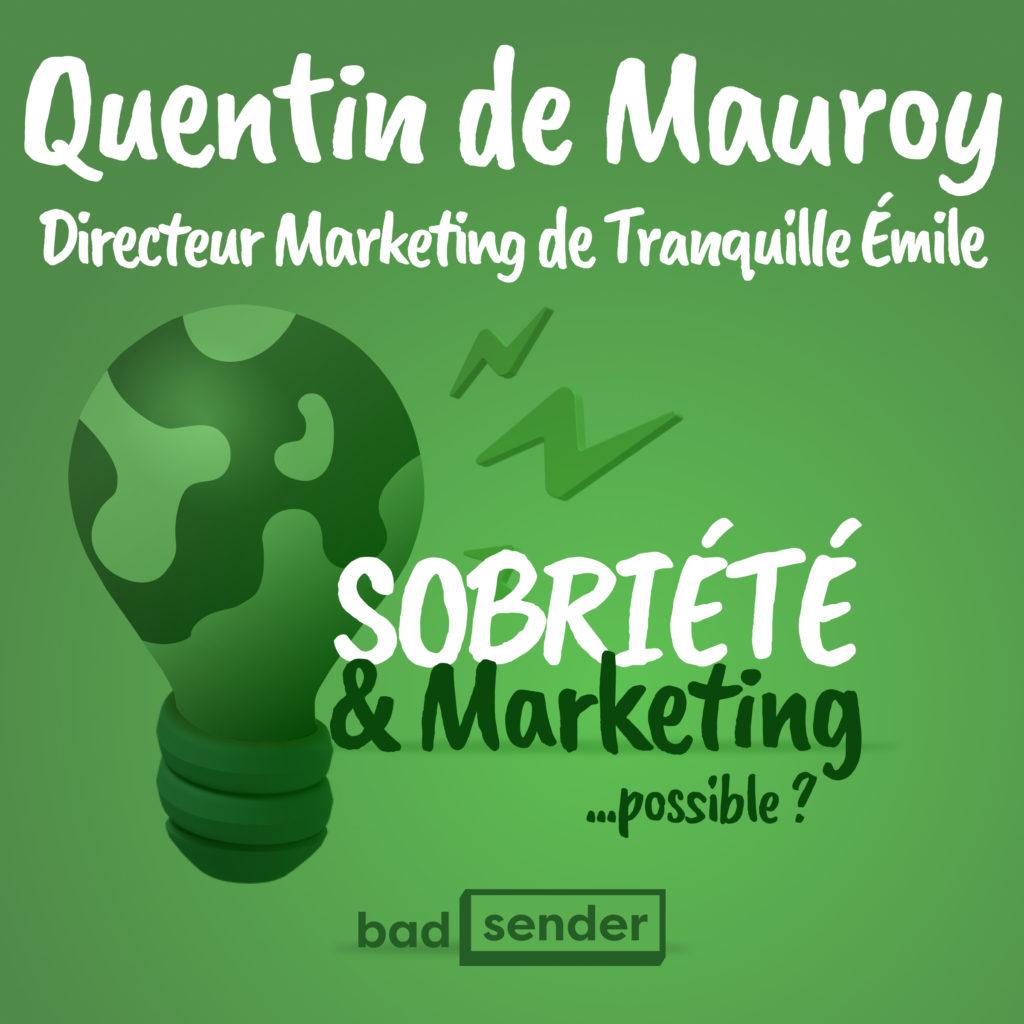" It's all about the slider."
This is probably the most common phrase used in this episode of the podcast "Sobriety & Marketing...possible?"recorded with Quentin de Mauroythe co-founder of Tranquille Émile.
Tranquille Émileis a brand of clothing and accessories made entirely in France. In any case, everything that can be made in France is made in France and without concession. From the outset, Quentin insists on his demand for localism, even if it means reducing the margin.
Quentin defines marketing as different actions that create need. But, in a world that needs to be more sober, is this something that brands should no longer do?
Where to put the cursor?
Without marketing, who will show that my product is more sober than another? How can I resist the urge to sell more, to make more money? How can I make my brand evolve without denying my values? Without marketing, how to change the paradigms of consumption? How to transform a need into responsible consumption? These are all questions I asked Quentin.
Need help?
Reading content isn't everything. The best way is to talk to us.
A story of cursor then.
- In its marketing, Tranquille Émile will put forward visuals that will always be accompanied by a text highlighting French production.
- Tranquille Émile has 150 references (clothing and accessories). No fast fashion but collections that are always more timeless.
- No black friday but sometimes sales, called "of responsibilities"and only on products at the end of their life.
- Shopping cart abandonment and retargeting techniques but not all-out ad campaigns.
- Marketing campaigns for "stay in people's heads"and to pass on the message of made in France and control of the carbon footprint.
- A loyalty program yes, but with a targeting that is not based on the shopping cart and where we do not offer discounts but a gift on the next order.
- A fair calculation of the order volume based on what was sold the previous year. We also talk about the difficulty of moving to a pre-order business model and what it impacts on the planning and organization of the value chain.
In short, a very transparent discussion, I hope you like it.
Enjoy your listening!
This recording is also available on all podcast platforms:




